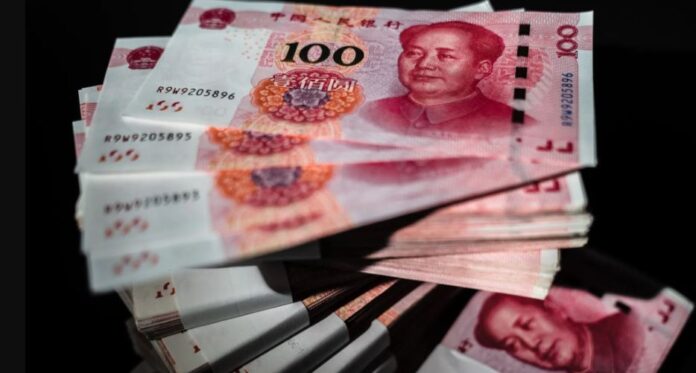Beijing, April 11, 2025 – Despite facing a staggering 145% tariff barrage from the United States, China is firmly resisting the temptation to aggressively devalue the yuan as a countermeasure. The decision comes as economists warn that a sharp drop in the currency’s value could unleash severe economic repercussions, including mass capital flight, destabilized financial markets, and a further erosion of consumer confidence. Instead, China’s central bank is adopting a cautious strategy of slow, controlled depreciation to navigate the escalating trade tensions.
The U.S. tariffs, aimed at curbing Chinese exports, have intensified pressure on Beijing to respond decisively. Historically, currency devaluation has been a tool for governments to boost export competitiveness by making goods cheaper on the global market. However, experts argue that such a move in today’s volatile economic climate could backfire disastrously for China. A rapid yuan devaluation risks triggering panic among investors, prompting them to pull capital out of the country at an alarming rate. This could destabilize China’s financial system, which is already grappling with domestic challenges such as a slowing economy and cautious consumer sentiment.
Also Read: Trade War Timeout: EU Delays Tariffs but Vows Swift Action if Talks Collapse
Joey Chew, Head of Asia FX at HSBC, emphasized the delicate balance Beijing is trying to maintain. “Rapid depreciation could weaken consumer confidence and risk capital flight,” Chew said. “China’s leadership is well aware that an unstable yuan could do more harm than good, both domestically and globally.” The central bank’s measured approach aims to cushion the economy against external shocks while signaling to markets that China prioritizes long-term stability over short-term trade war tactics.
For now, Beijing’s strategy reflects a broader effort to safeguard its financial system while navigating one of the most aggressive trade confrontations in recent history. Analysts will be closely watching how China balances these pressures as the U.S.-China tariff war shows no signs of abating.
Key Points: China’s Response to U.S. Tariffs and Yuan Devaluation Concerns
- China Avoids Aggressive Yuan Devaluation: Despite 145% U.S. tariffs, Beijing is steering clear of sharply devaluing the yuan to counter trade pressures.
- Risk of Capital Flight: Economists warn that rapid devaluation could trigger mass capital flight, destabilize markets, and erode consumer confidence.
- Controlled Depreciation Strategy: China’s central bank is opting for slow, managed depreciation to maintain economic stability.
- Expert Insight: Joey Chew, Head of Asia FX at HSBC, notes that rapid yuan depreciation could weaken consumer confidence and heighten financial risks.
- Focus on Stability: Beijing prioritizes safeguarding its financial system over short-term trade war tactics amid escalating U.S.-China tensions.



